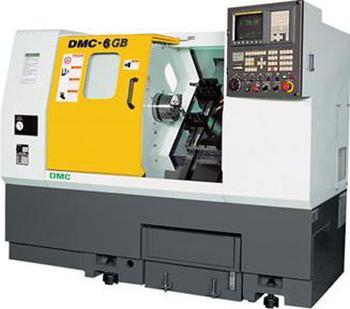 In 2009, China's machine tool production reached more than 400 billion yuan, making it the world's largest producer of machine tools. At the same time, however, we must realize that although the Chinese machine tool industry has grown proudly during the global economic downturn in 2009, the level of industrialization of high-end CNC machine tools in China is still not high, and a large number of machine tool manufacturers still have a very good foundation. Weak, high-end CNC machine tools needed in the domestic market are still mainly dependent on imports.
In 2009, China's machine tool production reached more than 400 billion yuan, making it the world's largest producer of machine tools. At the same time, however, we must realize that although the Chinese machine tool industry has grown proudly during the global economic downturn in 2009, the level of industrialization of high-end CNC machine tools in China is still not high, and a large number of machine tool manufacturers still have a very good foundation. Weak, high-end CNC machine tools needed in the domestic market are still mainly dependent on imports. Taking metal cutting machine tools as an example, although the total value of China's imported gold-cutting machine tools as a percentage of the total value of domestic gold-cutting machine tools is decreasing year by year, the total value of imported gold-cutting machine tools has remained unchanged. The industries that import these high-end machine tool products mainly focus on key industries such as aviation, aerospace, energy, shipping, and automobiles. Their performance requirements for machine tools are high, especially for machine tool movement accuracy, movement speed, operation stability, and intelligent monitoring. The requirements are much higher than other industries.
Taking the aircraft manufacturing industry as an example, the processing of parts and components in this industry mainly uses five-axis CNC machine tools. Therefore, there are unique requirements in multi-axis linkage accuracy, part processing consistency, and network-based fault diagnosis. In terms of machine tools, the above technical aspects still need to be improved. In general, the domestic machine tool industry has a large gap in user process research, industrial structure, and technology R&D.
With the increasing demand for various special machine tools in the global market and the increasing complexity of technical requirements, companies are urged to improve their own product development process. The management hopes that employees in different departments will work in the form of integrated project teams to increase work efficiency. Machine tool companies want to combine various IT systems into a complete software package and provide them to customers. In response, Luo Baihui, chief analyst of Jinmo Machine Tool Network, stressed that machine tool manufacturers should not ignore the increasingly strong mid-range technology areas, because new industrial countries are increasingly producing their own mid-range technology products.
Luo Baihui said that China's high-end machine tool market has always been dominated by the United States, Japan, and German companies. The mid-end market is mainly divided by Taiwan's machine tools, mainland machine tools, and Korean machine tools. German machine tools, regardless of machine tool performance or manufacturing process, can be referred to as the “big brothers†of the industry. If they enter the mid-end market, they will have a considerable impact on non-German companies. Chinese domestic machine tools are mainly concentrated in the low-end market. Although Chinese companies gradually move closer to the mid-end market, the mid-end market is still dominated by Taiwan and South Korea. In the long run, the mid-end market is a direction that Chinese companies must explore in the future. Obtaining a place in the mid-end market and stably expanding market share are crucial to the development of the Chinese machine tool manufacturing industry. At the same time, it is also an inevitable step on the way to the high-end market.
Strengthening cooperation with the Taiwan machine tool industry is one of the ways to resist the large-scale invasion of German and other foreign companies. In recent years, the machine tool industry in Taiwan has developed rapidly, maintaining a growth rate of over 60%, and ranking sixth in the world market. In 2011, the output value of Taiwan's machine tool industry reached 5 billion U.S. dollars. It is the sixth largest production area and the fourth largest export zone for machine tools in the world. In 2012, the export value reached 4.236 billion U.S. dollars, which is expected to surpass Italy and become the third place behind Japan and Germany. Large machine exports. In Taiwan, the value of the machine tools exported to China and Hong Kong each year is approximately US$1 billion. In 2012, the number of machine tools exported to China was US$1.431 billion, accounting for 33.8% of all exports.
Strengthening the cooperation model with Taiwanese companies and emphasizing technical exchanges have a positive effect on improving the manufacturing capabilities of Chinese companies. Mainland Chinese enterprises should pay attention to opportunities, seize opportunities, and put forward more cooperation projects on technology introduction and exchange.
Electric Vans are compact and efficient vehicles powered by electric motors and batteries. They provide eco-friendly and emission-free transportation for various purposes, such as cargo delivery and passenger transport. As new energy mini electric cars, they promote sustainable mobility solutions, emitting zero tailpipe emissions, and reducing greenhouse gas emissions. Electric Vans offer a green alternative for urban commuting and short-distance trips, contributing to cleaner air and a healthier environment. Their compact size and electric powertrain make them perfect for navigating through congested city streets and reducing traffic-related pollution. Embracing Electric Vans exemplifies a commitment to environmental responsibility and a greener future for urban transportation. With continuous advancements in electric vehicle technology, Electric Vans play a vital role in building a cleaner and more sustainable urban transportation network.
full electric pickup truck,byd electric truck,electric commercial trucks,electric mini truck for sale,electric work truck
Ningbo Autrends International Trade Co., Ltd , https://www.chinaevautos.com